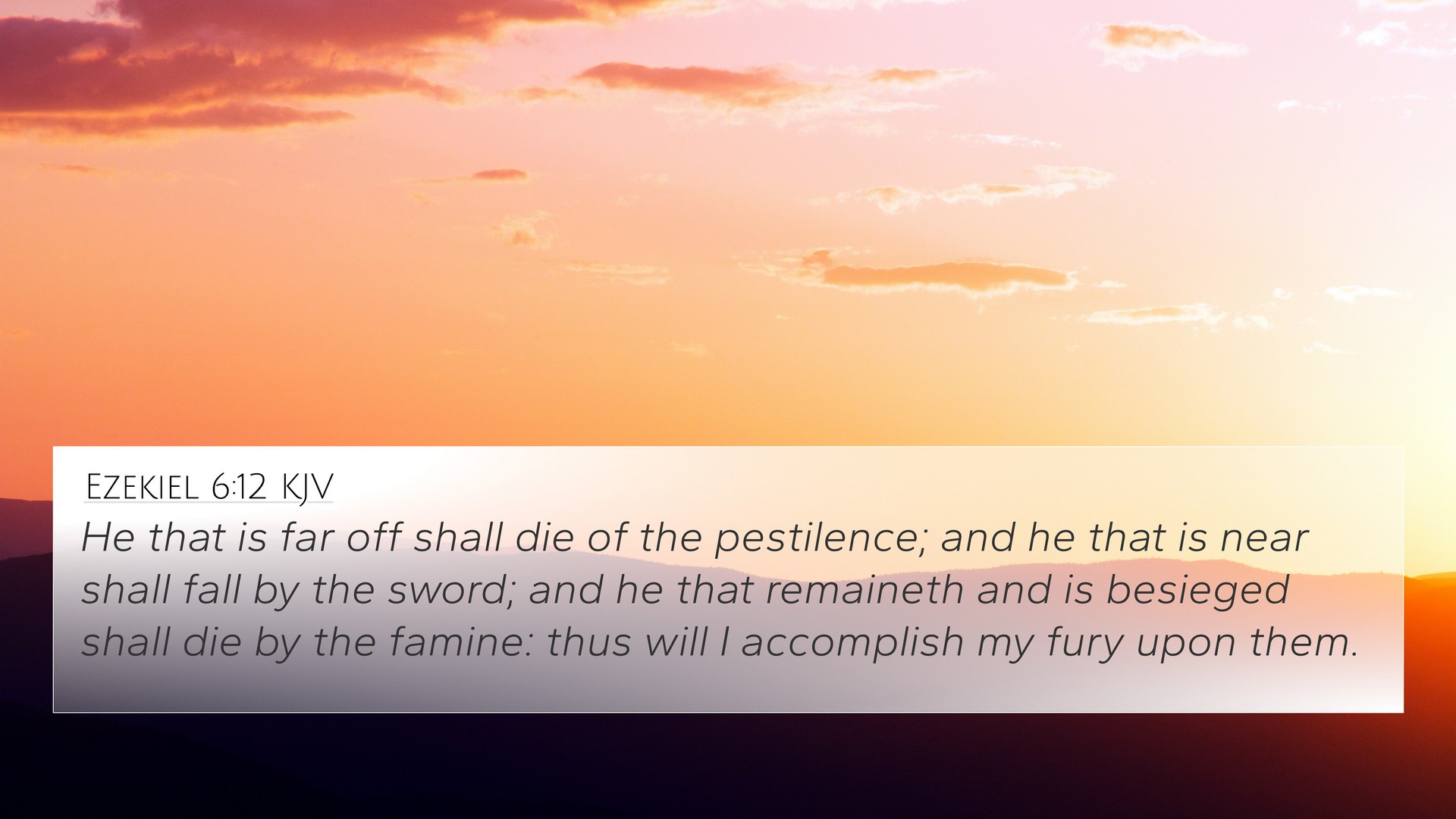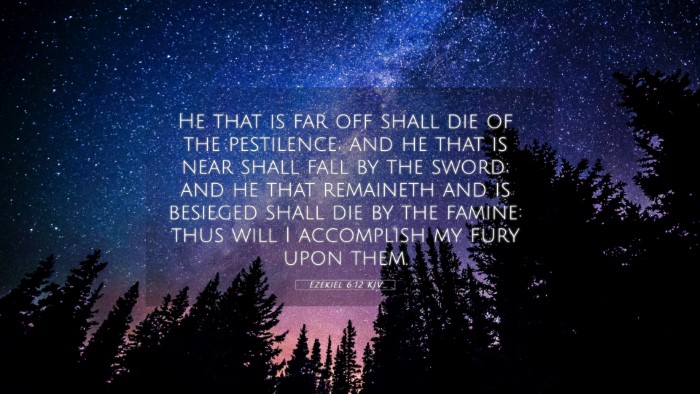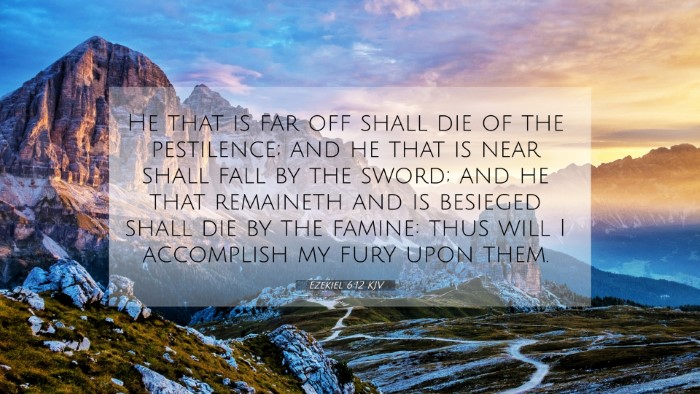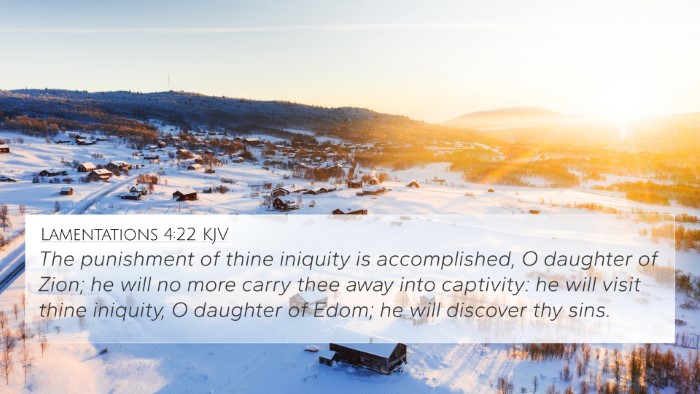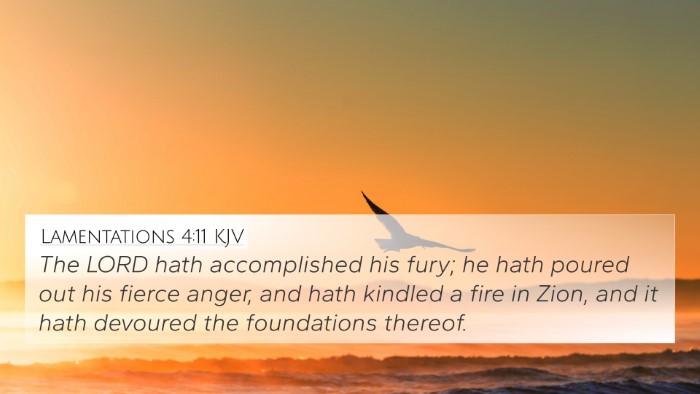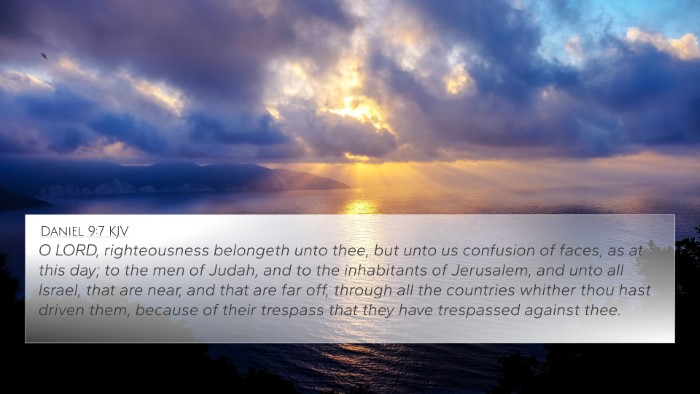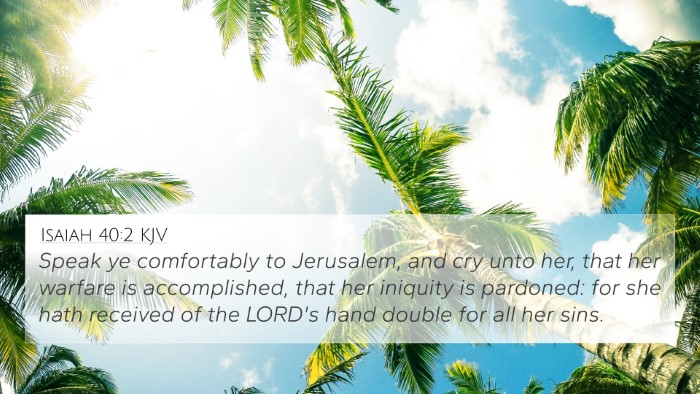Ezekiel 6:12 — Understanding the Verse
Ezekiel 6:12 states:
"He who is far off shall die of the pestilence; he who is near shall fall by the sword; and he who remains and is besieged shall die by the famine. Thus will I spend My fury upon them."
Summary of Meaning
This verse embodies the themes of divine judgment and the consequences of the people's unfaithfulness to God, as revealed through the prophet Ezekiel. The dire warnings illustrate how God’s wrath is expressed in various forms: pestilence, sword, and famine, showcasing the severity of their situation and the comprehensive nature of divine retribution.
Commentary Insights
Insights from various public domain commentaries provide a holistic understanding of this verse:
-
Matthew Henry:
Henry emphasizes the inevitability of judgment faced by the Israelites. He explains that whether one is far off or near, the consequences of sin are inescapable. The character of God’s judgment is severe and multifaceted, demonstrating a complete eradication of security among the people.
-
Albert Barnes:
Barnes elaborates on the different forms of destruction listed in this verse, highlighting that each represents the various ways God implements His justice. The mention of pestilence indicates spiritual and physical decay, while the sword represents violence and warfare, and famine underscores a deprivation of sustenance, both physically and spiritually.
-
Adam Clarke:
Clarke's commentary points to the implications of this judgment as a forewarning not just for Israel but as a broader lesson on the seriousness of turning away from God. He interprets the verse as an admonition against complacency in faith, illustrating that the divine retribution can manifest differently based on one’s proximity to the offense, yet the outcome remains grim.
Cross-References and Thematic Connections
Ezekiel 6:12 possesses several connections with other Bible verses that illustrate similar themes of judgment and divine punishment. Below are some relevant cross-references:
- Leviticus 26:25: This passage discusses punishment for disobedience through pestilence, reflecting the consequences similar to those mentioned in Ezekiel.
- Jeremiah 14:12: Here, God speaks about the futility of prayers when gross sins invade a nation, reinforcing the hopelessness under divine judgment.
- Ezekiel 5:12: This earlier verse explicitly mentions similar conditions of judgment—famine and sword—underscoring the thematic continuity in Ezekiel's prophecies.
- Amos 5:16-17: Amos warns of impending disaster, signaling a dire future for disobedient Israel, parallel to Ezekiel's ominous forecast.
- Matthew 24:7: In the New Testament, Christ speaks about famines and pestilences as signs of the end times, linking the prophetic declarations of the Old Testament with eschatological themes.
- Revelation 6:8: This verse depicts death and Hades as harbingers of judgment, mirroring the catastrophic results foretold in Ezekiel.
- Isaiah 51:19: Isaiah proclaims the suffering that arises from the Lord’s displeasure, paralleling the desperate conditions shown in Ezekiel 6:12.
Conclusion
Ezekiel 6:12 serves as a solemn reminder of the seriousness of divine judgment stemming from unfaithfulness. The interpretations and insights combined from public domain commentaries help clarify the multi-layered messages within the text. Therefore, understanding this verse through the lens of cross-referencing enhances our grasp of interconnected biblical themes relating to judgment, punishment, and God’s unwavering justice.
Tools for Further Study
To delve deeper into the thematic connections of Bible verses, consider using:
- Bible concordance for locating keywords.
- Bible cross-reference guides for studying thematic links.
- Cross-reference Bible study methods to find parallels among scriptures.
- Bible reference resources for broadened understanding.
- Bible chain references to follow themes throughout the text.
